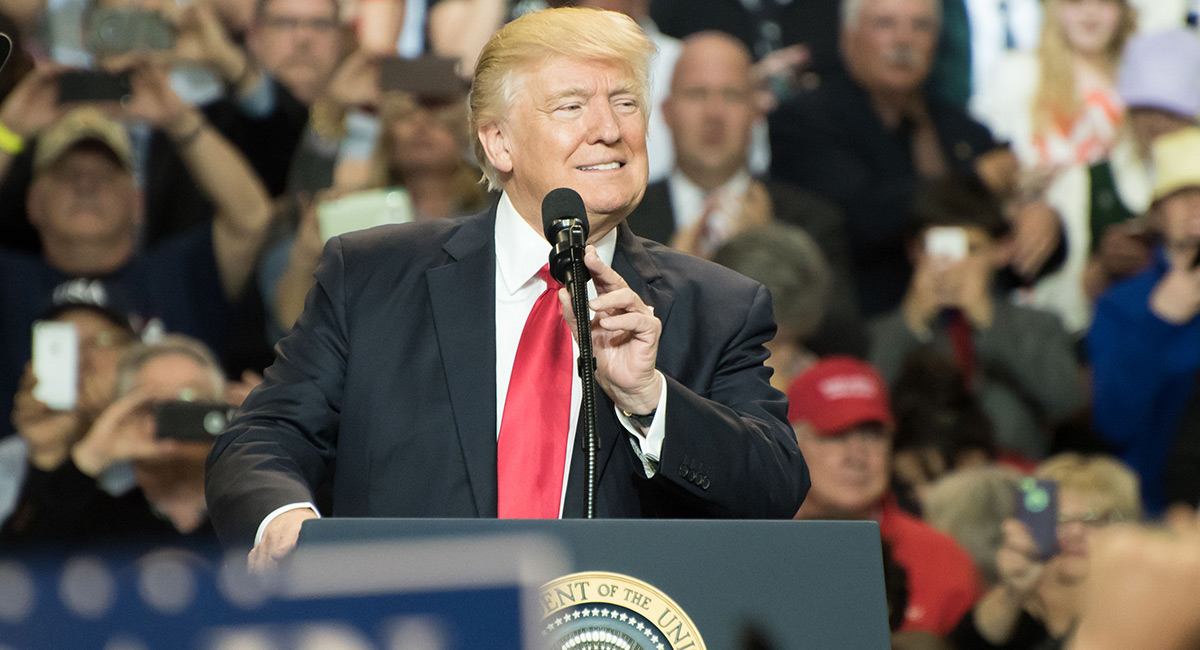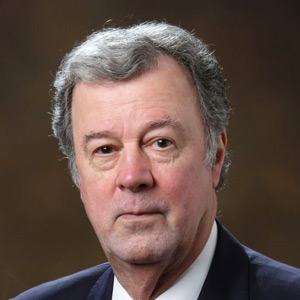Ever since Donald Trump became president, there have been two competing narratives about him—both of which signal an epic constitutional crisis.
One narrative has been relentlessly pushed on CNN and MSNBC and in print by the New York Times and the Washington Post. The other has been a staple on Fox News, on the editorial pages of the Wall Street Journal, and on conservative talk radio.
Each of these narratives suggests that the future of the American democracy is in jeopardy. Yet they are so completely different that when you put them side by side, it is as if the narrators are living in alternative universes. Also, the purveyors of both portrayals completely ignore each other. There is no rational discussion between them.
I confess, I have not mastered the details of either narrative. But that’s probably a benefit for readers. I’ve noticed that folks who have delved deeply into them have extreme difficulty explaining what is going on to the rest of us. So, let’s make do with a bird’s-eye view.
If you have access to a Google search engine, you will have no difficulty discerning the left’s view of Donald Trump, at least in the early days:
- “President Donald Trump Is Giving Aid, Comfort To The Enemy,” announced former CIA Director John Brennan on MSNBC’s Morning Joe.
- “Trump is either An Agent of Russia’ or A Useful Idiot,” wrote Joe Scarborough in The Hill.
- “[Russian] State Media Claims That President Donald Trump Is An ‘Agent’ of Russia,” was a headline at Salon.
- “Here Are 18 Reasons Trump Could Be A Russian Asset,” was the title of an opinion piece in the Washington Post.
- “Trump Must Be A Russian Agent; the Alternative Is Too Awful,” was the headline at Wired.
- “F.B.I. Opened Inquiry Into Whether Trump Was Secretly Working on Behalf of Russia,” was the headline of an obviously leaked story in the New York Times.
- “Is Trump a Russian agent?” Senator Bob Menendez asked on the floor of Congress.
- “CNN Discussion: Trump Is A ‘Russian Agent’” reported the Washington Times.
The accusation that Donald Trump is an agent of a foreign power, fully guilty of treason, was also a recurring theme on the editorial pages of the New York Times.
- “Already, Trump Has Flirted with Treason,” wrote Timothy Egan in an early editorial.
- “Odds Are, Russia Owns Trump,” was the title of an editorial by Michelle Goldberg.
- “The New Climate Of Treason,” was the title of a blog post by Paul Krugman.
- “Trump, Treasonous Traitor” was the headline on a column by Charles M. Blow.
Now let’s turn to the way the right views all this. Here is what Holman Jenkins wrote in the Wall Street Journal the other day:
“The massive U.S. intelligence establishment had looked and found no evidence of Russia collusion by the time Mr. Mueller was named special counsel. He knew there was nothing there.”
So, if Mueller knew the president was innocent before he even started, what was the Mueller investigation all about? What is hinted at on the pages of the Wall Street Journaland blatantly asserted by numerous guests on Fox News is that the U.S. intelligence agencies conspired to use all their powers to keep Donald Trump from becoming president and to prevent him from effectively governing once he was elected.
If you don’t find all of this bizarre, you haven’t been paying attention.
Two hundred years ago if a president were accused of treason, the country could afford to sit through a Senate trial lasting months. In the nuclear age, that’s not possible.
If the president really were a Russian agent, Russia could launch a nuclear attack and the president could order our forces to stand down. Since Russian missiles target our missile silos, in a matter of minutes our capacity to fight back would be severely crippled if not completely eliminated. In less than an hour, we would be a defeated country.
So if you really believe the president is a foreign agent, you call on the military to step in and stage a coup—just like in a banana republic.
If the narrative on the right is correct, the situation is almost as dire. In this story, the highest intelligence officials in the land used secret courts, secret surveillance, and unlawful media leaks to undo what the American voters had decided. And Barack Obama may have been in on it.
If the CIA, the NSA and the FBI have gone rogue—if they no longer answer to the president—then we have an invisible government. Our ability to respond to world events, including the threat of war would be determined by a deep state rather than by democratic voting.
Here again, if you really believe the president is not in control of the government, you should be calling on the military or some other force to step in and stop a de facto coup d’état by rogue actors.
I think it is fair to say that the Russian agent theory has come and gone. You don’t even hear it from leftwing writers anymore—although their hatred of Trump has hardly subsided.
The right-wing narrative keeps inching up in credibility, however, especially with new developments in the Michael Flynn case.
Why would a former president of the United States weigh in on a case where the only issue is whether statements the defendant made were intentional lies, accidental lies, not lies at all, or immaterial even if they were lies? With all due respect to Gen. Flynn and his family, how do these matters warrant impassioned interjections by Barack Obama?
And what would provoke the New York Times to publish a two-column editorial on the matter, stretching from the top to the bottom of the editorial page?
It’s tempting to conclude the Trump critics are panicking.












